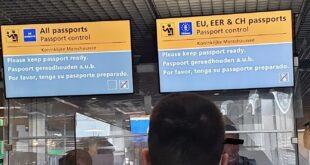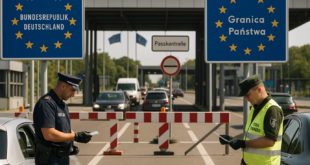The Swiss Federal Council has adopted new regulations that would require foreigners residing in Switzerland to meet certain criteria of good behaviour before their residence permits are renewed.
The seven-member executive body adopted the new regulations on Wednesday (15 August) as part of the revision of the Act on Foreign Nationals. The new rules will enter into force in 2019.
Various permits may be renewed directly if it appears that a foreigner’s integration into Swiss society is likely to proceed favourably. However, proof of a lack of integration could have serious consequences.
The authorities may only grant or extend a residence permit if certain criteria are met. The law refers to parameters like respect for public security and order and constitutional values, participation in economic activity or the acquisition of training, as well as language skills.
Knowledge of a Swiss national language shall be assumed for foreigners for whom it is already a mother tongue, as well as those who have completed three years of compulsory schooling in that language instead of the five initially proposed. A one-year transitional period has also been added for the application of the language requirements.
The more rights that are granted to the individual, the more the language requirements increase. The granting of a residence or establishment permit in the event of family reunification will also require language skills, but failing that, enrolment in a language course will suffice.
Penalties
Those who show no willingness to integrate may be obliged to sign an integration agreement mentioning the expectations that need to be met. However, the cantons will not be forced to conclude such agreements.
Failure to comply with such an agreement could affect the renewal of the residence permit. For example, someone with a permanent residence permit (C permit holder) who does not meet the integration criteria may be relegated to temporary resident status (B permit holder).
Refugees and provisionally admitted foreign nationals receiving social assistance may be obliged to participate in integration or job-training programmes. If they do not do so without good reason, social assistance benefits may be reduced.
The authorities may only make exceptions to take personal circumstances into account. However, these exceptions must fall under rules that will be defined by the Federal Council after a consultation process. For example, living in poverty despite employment can qualify for exception, but not dependence on social assistance.
The new rules also make it easier for refugees to access the labour market. A simple announcement will replace the authorisation procedure that refugees and those provisionally admitted must follow. A third party mandated by the cantons to find internships or positions will then be able to carry out this task, which will relieve some of the burden on potential employers.
Switzerland has 2 million foreign residents, equal to a quarter of the country’s population. Over 80% of foreigners living in Switzerland come from Europe with the citizens of Germany, Italy, Portugal and France together making up almost half of all foreign residents.
© SWI
 THE AFRICAN COURIER. Reporting Africa and its Diaspora! The African Courier is an international magazine published in Germany to report on Africa and the Diaspora African experience. The first issue of the bimonthly magazine appeared on the newsstands on 15 February 1998. The African Courier is a communication forum for European-African political, economic and cultural exchanges, and a voice for Africa in Europe.
THE AFRICAN COURIER. Reporting Africa and its Diaspora! The African Courier is an international magazine published in Germany to report on Africa and the Diaspora African experience. The first issue of the bimonthly magazine appeared on the newsstands on 15 February 1998. The African Courier is a communication forum for European-African political, economic and cultural exchanges, and a voice for Africa in Europe.
































